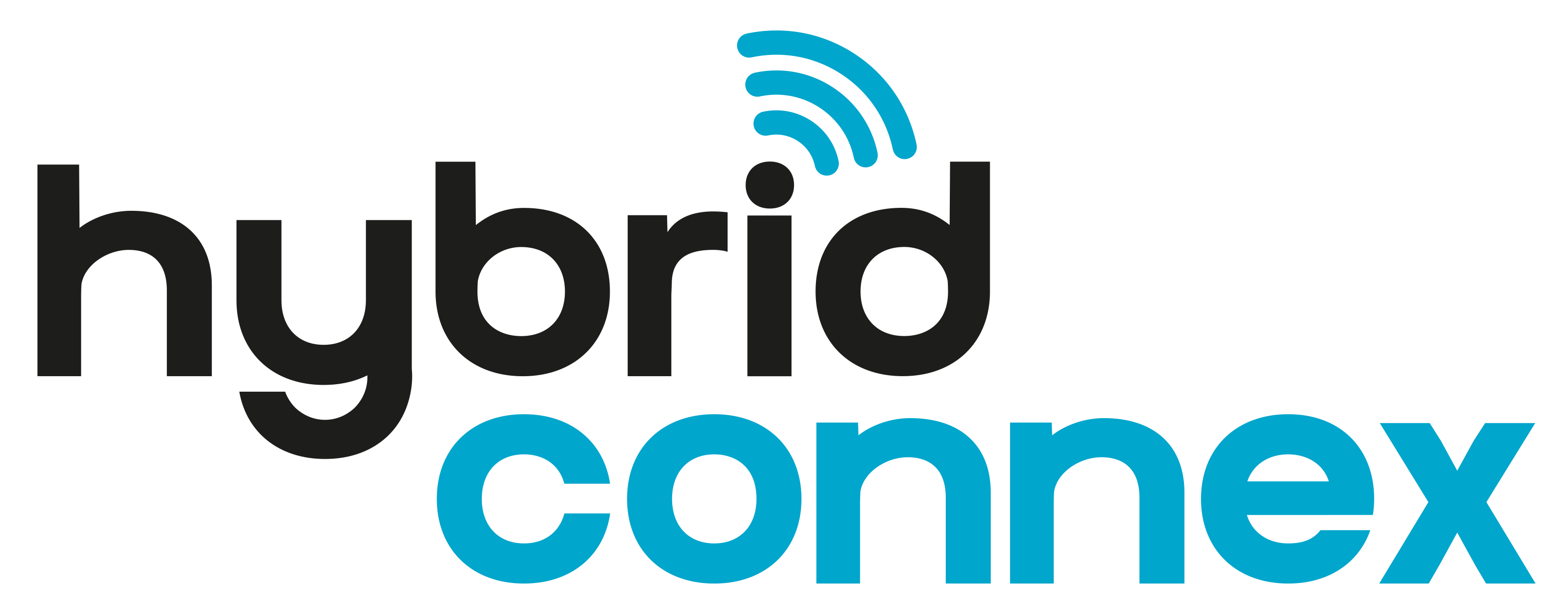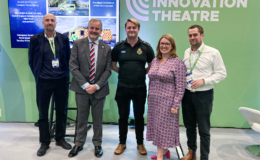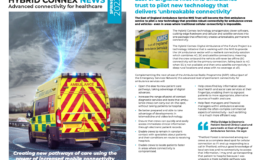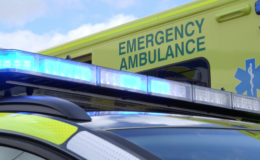Excelerate Technology can announce that its European Space Agency-funded Hybrid Connex research and development programme has unveiled promising early results from its pilot trial conducted at the East of England Ambulance Service NHS Trust (EEAST). The groundbreaking technology, which surpasses 4G limitations, has showcased robust connectivity for ambulance crews and vehicles, even in areas where traditional cellular networks face extreme challenges.
Excelerate has been delivering fully integrated and ‘hybrid’ connectivity solutions, bonding satellite, cellular and WIFI for the first responder sector, utilities and Government organisations for more than 20 years. The pilot trial results were presented at the Emergency Services Show in September and the Ambulance Leadership Forum in October 2023. EEAST, as the first ambulance service to pilot this cutting-edge technology, has reported positive reviews from staff, highlighting improved connectivity and support for safe non-conveyance of patients to hospitals.
![Phil Elvidge and Rogan Day 1[2]](https://hybridconnex.co.uk/wp-content/uploads/2023/11/Phil-Elvidge-and-Rogan-Day-12.png)
Hybrid Connex integrates advanced software, state-of-the-art hardware, and cellular and satellite services into a comprehensive package, creating a resilient, permanent connectivity solution. This innovative approach seamlessly combines 4G, 5G, and satellite connections, ensuring ambulance crews have fast, reliable connectivity, even in remote or challenging areas. The unobtrusive hardware allows for a quick technical fit-out in a single day, minimising downtime for the vehicles.
With the advent of Low Earth Orbit (LEO) satellite technology and widespread 4G/5G coverage, access to hybrid connectivity has become critical for effective remote communications. The Hybrid Connex solution leverages satellite services as a backup, ensuring connectivity remains available even when cellular networks fail, a crucial advantage during large-scale incidents.
“The results so far have been incredibly promising. Our speed tests have demonstrated a persistent, high-quality connection while the ambulance is on the move, maintaining performance levels despite geographical changes that would typically affect network quality. The bandwidth available is sufficient to support both current and future applications, offering near symmetrical upload and download speeds.
“Faster upload speeds significantly enhance the efficiency of remote communication, enabling quick sharing of the most up-to-date and accurate information. Not only does it improve the speed in which patient data can be recorded, updated, and synchronised, but can also enable real-time video consultations with physicians or specialists through telemedicine platforms. Faster upload speeds ensure smoother video conferencing and communication, enabling paramedics to receive immediate guidance and support at the scene.
“This is game-changing technology for emergency services that need seamless internet access to respond to incidents effectively and address patient needs. As the emergency services sector transitions to the Emergency Services Network (ESN), Hybrid Connex offers an additional layer of advanced technology to enhance clinical connectivity. The early success of the trial indicates the potential for improved patient care and a reduction in unnecessary conveyance to hospitals.”
![hybrid connex square image[1]](https://hybridconnex.co.uk/wp-content/uploads/2023/11/hybrid-connex-square-image1.png)
“As we move forward with the integration of digital technology to ambulance front line care, we have access to more information about our patients than ever before, but we need to be connected all of the time to take advantage of it. Paramedics need to know they can always have the same information available no matter where they attend to their patients. With Hybrid Connex in place, we are already seeing how a guaranteed connection improves our patient care, as we can download information about the patient and access their clinical records whenever needed. We are already starting to use new functionality like video calling to a stroke consultant in a specialist centre, for example.”
Funded by a €5.7m grant from the European Space Agency (ESA), emergency services connectivity specialist Excelerate Technology is leading a consortium of partners to deliver Hybrid Connex, including NHS AGEM, Livewire, Satellite Applications Catapult and Vodafone.





